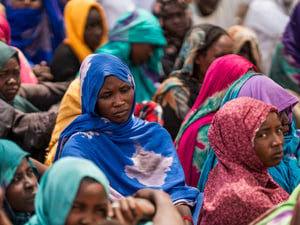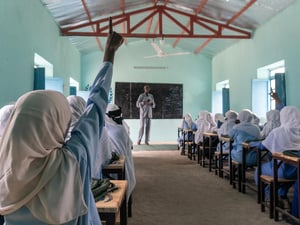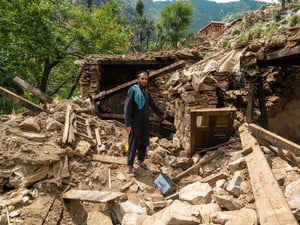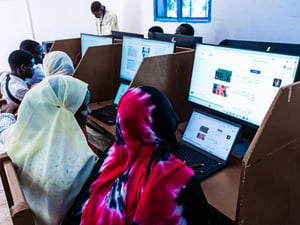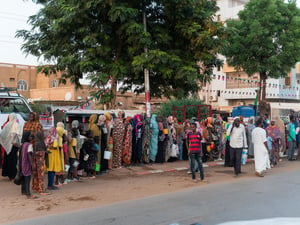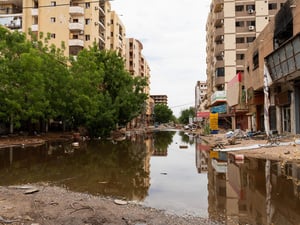Chad: new influx of Sudanese refugees
Chad: new influx of Sudanese refugees
Nearly 10,000 new Sudanese refugees have fled to eastern Chad over the past few weeks, escaping the worsening conflict in the Darfur region of western Sudan. Local authorities say the new arrivals bring to 75,000 the number of Sudanese refugees who have fled conflict in Darfur over the last seven months. Refugees arriving from Darfur speak of aerial bombardment of homes and alleged "ethnic cleansing" by Sudanese Arab militia. These allegations could not be confirmed independently.
Local authorities are continuing the registration of the earlier group and will also register this new group. Our emergency staff are in the process of identifying vulnerable refugees among the new arrivals and will distribute basic supplies to them. Many of the new refugees have joined others who have been living in a series of sites dotted along the volatile border. The largest number of new refugees (6,000) is in Tisi, while another 3,000 are in Ade and Nakoulouta, south of the border town of Adré. Some 1,000 new arrivals are also in Birak, north-east of Abéché, the main town in eastern Chad.
Last week, our staff visited some of these locations to verify reports about new arrivals. They report a visible presence of new refugees. Because of concerns for security, we have, however, not been able to go to Tisi which has received the largest number of new arrivals in this latest wave of arrivals. Tisi is some 300 km from the border town of Adré.
We continue to have concerns about the security situation along some of the border sites where refugees are encamped. An increasing number of cross-border incursions and theft of livestock has been reported. Over a three day period (Nov. 28 - Dec. 1), for example, more than 600 head of livestock were stolen from refugees and Chadian communities in a number of separate incidents, a raid on a site north of Adré on Dec. 1 that led to three deaths and one abduction. Two of those killed were Sudanese.
Because of increasing concerns about the safety of the refugees living dangerously close to the border, we have begun work to develop one of two sites that was identified for the transfer of some 30,000 refugees. The site, Farchana, is some 55 km from the border town of Adré. We hope to sink wells and put basic infrastructure, such as a road network within the camp, ahead of the relocation of the refugees in the coming weeks. We expect to begin, soon similar work on a second site - Sarang - located north-east of the town of Abéché.


